Politics
Wetherspoon’s boss calls academics’ smaller beer glass proposal ‘slightly daft’ | JD Wetherspoon
The boss of Wetherspoon’s has urged the UK government not to heed calls to restrict pub licensing hours or swap pint glasses for smaller schooners, arguing that pubs have “changed radically in recent decades”.
Amid reports, denied by the health department, of moves to cut alcohol consumption, Tim Martin, the pub chain’s chief executive, said the industry had moved away from a focus purely on beer, and Pepsi, tea and coffee were now the most popular drinks in his establishments.
He dismissed as “slightly daft” the recent and widely reported academic study proposing a switch to a two-thirds of a pint glass size – as used in Australia, where they are known as schooners.
His remarks came as Wetherspoon’s, which has 800 pubs and is aiming for 1,000, reported a 73.5% increase in pre-tax profits to £73.9m in the year to 29 September, with like-for-like sales up 7.6%. In the last nine weeks, like-for-like sales growth slowed to 4.9%.
The company said it would pay a dividend – of 12p a share – for the first time since 2019.
Martin said: “The word pub may have a misleading connotation for some ministers and researchers. For example, Wetherspoon’s highest selling-draught product by far is Pepsi. Coffee and tea volumes, which are not in the draught category, are approximately double those of Pepsi. The reality is that products sold in pubs have radically changed in recent decades.”
The comments came after the public health and prevention minister, Andrew Gwynne, suggested at a Labour fringe event “tightening up on some of the hours of operation”, although Keir Starmer later dismissed as “nonsense” the suggestion that the party would force pubs to shut early. The prime minister told LBC radio’s Nick Ferrari at Breakfast: “This is not government policy. We are not going to do it.”
Since 1988, pubs have been allowed to open all day, having previously been required to close for about two or three hours each afternoon. After the further relaxation of licensing laws in 2005, Wetherspoon’s pubs have been able to stay open until midnight on weekdays and until 1am on Fridays and Saturdays.
Martin said that pubs, clubs and restaurants accounted for 90% of beer sales in the early 1980s, but this had fallen to 40%, probably because of a growing price disparity with supermarkets, which pay virtually no VAT on alcohol, compared with 20% at pubs.
Any restriction of pub opening hours was “likely to be replaced by ‘off-trade’ consumption at home and in other ‘unregulated’ environments”, he said.
Research from the University of Cambridge found that switching away from pint glasses reduced the daily average volume of beer, lager and cider sold by almost 10%, although there was a slight increase in the amount of wine bought.
after newsletter promotion
Martin rejected the idea that the use of schooners would reduce alcohol consumption, saying it would lead to more drinking at home or in parks. He added: “For example, our Aussie cousins, notorious guzzlers, already use schooners without any noticeable reduction in consumption.”
The government is considering banning smoking in some outdoor spaces – pub gardens, outdoor restaurants and outside hospitals and sports grounds – and health experts have welcomed the plans.
Martin told the Guardian that Wetherspoon’s introduced the first non-smoking pubs in the UK, before a nationwide ban. “On balance, looking at industry concerns and a diluted health argument for outside smoking, I wouldn’t extend the ban to gardens. If introduced, it would probably be a political gesture only.”
He also used the annual results to warn once more against any further Covid-19 lockdowns, as he has in previous annual results since restrictions eased. He cited research that found Sweden, which did not lock down, had a Covid-19 fatality rate “of about half the UK’s” and that “the worst performer, by some margin, was Peru, despite enforcing the harshest, longest lockdown”.
The government was approached for comment.
Politics
Robert Jenrick’s leadership bid: Local Tories reacts

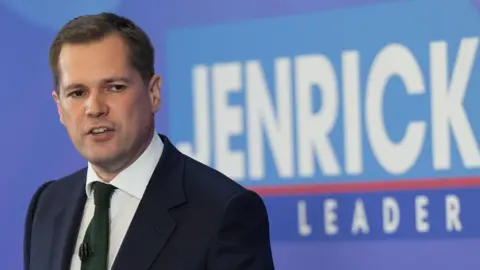 PA Media
PA MediaThe MP for Newark has made it through to the final two of the Conservative leadership contest along with Essex MP Kemi Badenoch – but do the locals think Robert Jenrick is the right person for the job?
“We need to get it right this time”, Conservative activist Jenni Oliver tells me, as she takes a sip from her cappuccino.
Tory members like Ms Oliver have grown accustomed to choosing prime ministers, but now they’re selecting the leader of the opposition.
“We voted Liz Truss in. That was a big mistake as far as I was concerned. Boris Johnson? No.”
“For me, that’s where the Conservatives lost it.”
The activists I am meeting for a coffee in the Nottinghamshire market town of Newark have real skin in the game this time.
Unsurprisingly, members of Jenrick’s local Conservative association all believe he is the best person to revive the party’s fortunes.
Tony Roberts, the president of the association, argues that the former cabinet minister has “really matured” as a politician.
Seen initially as an ally of David Cameron on the more “moderate” wing of the party when he became an MP in 2014, Jenrick has shifted to the right after quitting as immigration minster last year.
They accept that while his views might have changed over the years, his Conservative “values” are the same.
Tories here have fond memories of knocking on doors for Jenrick when he was first elected in a by-election a decade ago.
Sue Saddington, a local councillor, recalls having his campaign team over to her house for shepherd’s pie.
Now she is salivating again at the prospect of him becoming leader.
The local area “will really wake up to the fact that they have somebody of stature now in Newark,” she said.
“I think Newark will absolutely rejoice to it.”
It is a bold claim in a seat where more than 60% of voters backed other candidates in the July general election.
Jenrick’s majority was slashed from 22,000 to 3,500, with both Labour and Reform UK making huge gains at the election
He is now the only Conservative MP anywhere in Nottinghamshire or neighbouring Derbyshire.
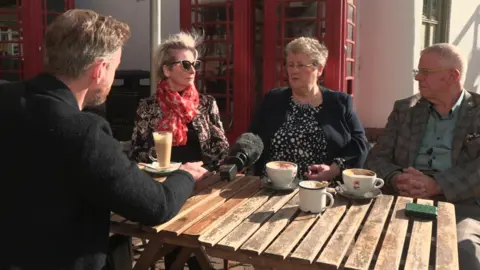
That result is described as a mere “blip” by Mr Roberts.
His more immediate concern is the limited options given to members in the leadership election.
“We’ve got just two, right-wing candidates and I would have liked the membership to have a wider choice,” he said.
“That’s why going down to two was a mistake, it should have been at least three.”
The timetable of the election race is also mistake.
Unless a candidate drops out, the result will be announced after the Budget – meaning Rishi Sunak, not his successor, will respond to Chancellor Rachel Reeves.
And what of the bookies’ favourite to be next Tory leader, Kemi Badenoch?
Both Ms Saddington and and Mr Toberts stress the importance of the party uniting behind whoever wins.
But Ms Oliver is not convinced.
“Personally, I think it’ll be a few months – it could be another Liz Truss,” she said.
Politics
Challenged on death of Dawn Sturgess, Russian ambassador dismisses inquiry

 BBC
BBCThe family of Dawn Sturgess, who died six years ago after coming into contact with Novichok, have been calling on Vladimir Putin to speak to the inquiry after her death in the Salisbury poisonings.
I put their request directly to Andrei Kelin, the Russian ambassador to the UK, in as part of a wide-ranging sit-down interview that will be broadcast on Sunday.
“I hardly believe President Putin will go to Britain just to testify something,” he said.
The UK government holds Russia, and two Russian agents, known as Alexander Petrov and Ruslan Boshirov, responsible for the attack.
Andrei Kelin questioned the need for an inquiry. “Why drag this history so long?”
He also rejected suggestions Petrov or Borishov should attend, saying the men had already given answers on TV – referring to a 2018 interview they gave on Russian state TV in which they claimed they had just been visiting Salisbury Cathedral.
That claim was mocked by some in Russia. UK officials called the interview “risible”.
Challenged with the fact that the UK, US, France, Germany, Canada all believe the attack was carried out by Russia with Novichok manufactured in Russia, Kelin said that “too many governments” were involved and dismissed their allegation as “nonsense“.
Pressed to give a response to the Sturgess family, the ambassador appeared to laugh, saying: “I have never met this family … If someone has died, of course we are concerned about that.”
On Ukraine, Kelin accused the UK of “waging war” on Russia by supporting the country with weapons and resources. If Zelensky “won’t negotiate with us, fine”, he said. “He will lose more and more terrain.”
This week, the Ukrainian president published a so-called victory plan to try to bring the conflict to an end next year.
It includes a formal request to join Nato and the lifting of bans on long-range strikes with Western-supplied weapons deep into Russia.
Challenged on Russia’s illegal invasion and stalemate in the war, the ambassador said Zelensky “does not want peace … he continues to ask for more and more; Nato, EU assistance, defence packages.
“Anything, but nothing about negotiations at all.”
Kyiv, backed by its allies, has always rejected any suggestions of negotiation after the Russian invasion. They believe that would mean the permanent loss of Ukrainian territory.
Western governments believe that Putin is under rising pressure at home, with increasing casualties and the huge cost of the war. Even Moscow’s finance ministry has acknowledged the intense strain on the economy.
But Kelin claims Russia is living “absolutely normal life”.
Asked if the suffering on both sides kept him awake at night, he said: “No one likes the war.” He said it could stop if the West stopped supplying arms to Ukraine.
“We are not just going to say, OK, [from] tomorrow we do not shoot each other. We won’t.”
On Friday, Keir Starmer reiterated his support for Ukraine. “We have always said that it is for the Ukrainian people to decide their own future so we’re clear, together with President Zelensky, that the only acceptable outcome is a sovereign Ukraine and a just peace.”
He also said Russia was getting weaker, with the war soaking up 40% of its budget, and the government believing there were more than 600,000 dead or wounded Russians, and another 500,000 casualties predicted by the end of the year.
With reports in recent days that North Korean troops are backing the Kremlin in the conflict, Kelin was challenged on Russia’s reliance on pariah states like North Korea and Iran.
“For us, it’s normal people, we have been friends, and we have a lot of common interests with North Korea and Iran … Anything bad – we do not see it.”
And on the American election, with just weeks to go, the ambassador claimed the winner didn’t make a difference at all. He said there was a “two-party consensus” on Russia – “and this is anti-Russian sentiment”.
The ambassador said that Russia had changed its nuclear doctrine in response to conversations among Western allies about allowing Ukraine to use long-range missiles supplied by them to fire into Russia.
Russia now says it would consider an attack from a non-nuclear state that’s backed by a nuclear-armed one to be a “joint attack”. That has been construed as a threat to use nuclear weapons in Ukraine.
Jens Stoltenberg, the former Nato boss, said the West had “called Putin’s bluff” over nuclear threats – implying it had crossed many of Putin’s red lines without anything happening.
Kelin said Stoltenberg’s statement itself was “a bluff” – adding Russia would protect itself “with all the means that are in our disposal, and believe me, there are lots of them.”
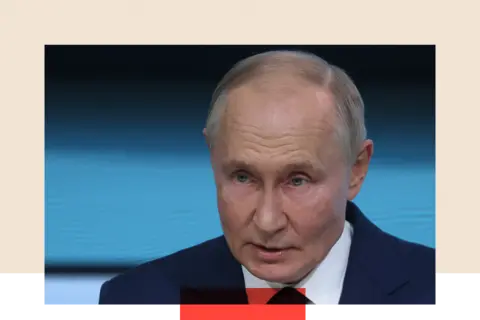 Getty Images
Getty ImagesIt is hard to overstate the impact of the Salisbury attacks on the fraught relationship between the UK and Russia.
A senior figure involved in the UK government response told me it was a “huge tipping point.
“It was shocking in the fact that the Russians were trying to kill people on our soil, but also, so blatantly happy for us to know that it was them,” they said, pointing to the use of Novichok, known to be manufactured and used by the Russian state.
Only a year before, then-Foreign Secretary Boris Johnson had gone to Moscow in the hope of a “reset” of the relationship between the two countries.
But another senior source told me: “we simply couldn’t have a normal relationship with them again with that in the background”.
They described the poisonings as worse than anything that had happened in the Cold War. “The competition was pretty brutal then, but this kind of thing was completely unacceptable.”
More than 20 Western allies expelled diplomats and spies from their countries in response after a bout of frantic diplomacy by Theresa May’s government, including pushing former President Trump to act.
One figure recalls, “it was pretty hairy at the time, a lot of Europeans didn’t want to do it. Trump personally didn’t want to do it but was persuaded to do so”.
The UK insisted that the announcement of the expulsions from each country was made at exactly the same time, with only the UK aware of how many Russians each government planned to order to leave.
The fear in Downing Street was that Trump would not be willing to take drastic action if he had known the numbers each European country were planning to expel.
The UK government now believes that Russia is the number one threat to the UK’s security.
Labour said in the election: “the defence of the UK starts in Ukraine,” and ministers believe the same now they are in government.
The UK has been at the forefront of leading the Western backing of Ukraine since the invasion in 2022, and has sent billions of pounds worth of weapons and resources to support the effort.
It’s given staunch political backing to President Zelensky – but don’t expect a decision on his request to use Western long-range missiles for at least a few weeks.
There are concerns in government about Russia increasing its efforts at sabotage on UK soil, with the boss of MI5 warning this week Russia was more and more engaged in “arson, sabotage and more dangerous actions conducted with increasing recklessness”.
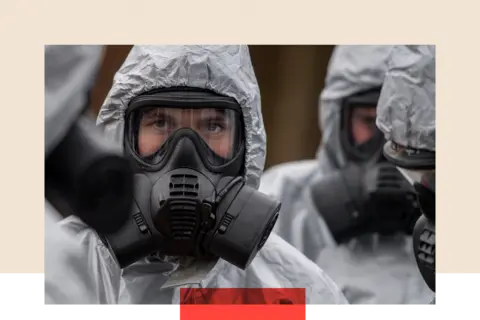 Getty Images
Getty ImagesBack in 2018, when the poisonings happened, the UK had no way of predicting how Russia’s aggression would grow into what one source calls an “off-the-charts bigger crisis” – with its illegal invasion of Ukraine.
But as the Salisbury inquiry delves into the impact of the poisoning on one innocent British family, its significance as a moment of the rupture in relations is clear too.
That’s caught in a conversation understood to have taken place between UK national security adviser Mark Sedwill and his Russian counterpart at the time, after Western allies had expelled 300 diplomats.
“You seem to want to take us back to the days of the Cold War,” the Russian said.
“Well, Yuri, at least we all knew the rules then,” Sedwill responded.
You can watch our interview with Russian ambassador Andrei Kelin tomorrow at 09:00 on Sunday with Laura Kuenssberg on BBC One. We’ll also talk to Health Secretary Wes Streeting.
Top photo credit: Getty Images


BBC InDepth is the new home on the website and app for the best analysis and expertise from our top journalists. Under a distinctive new brand, we’ll bring you fresh perspectives that challenge assumptions, and deep reporting on the biggest issues to help you make sense of a complex world. And we’ll be showcasing thought-provoking content from across BBC Sounds and iPlayer too. We’re starting small but thinking big, and we want to know what you think – you can send us your feedback by clicking on the button below.
Politics
Weight loss jabs for unemployed not dystopian, says Wes Streeting
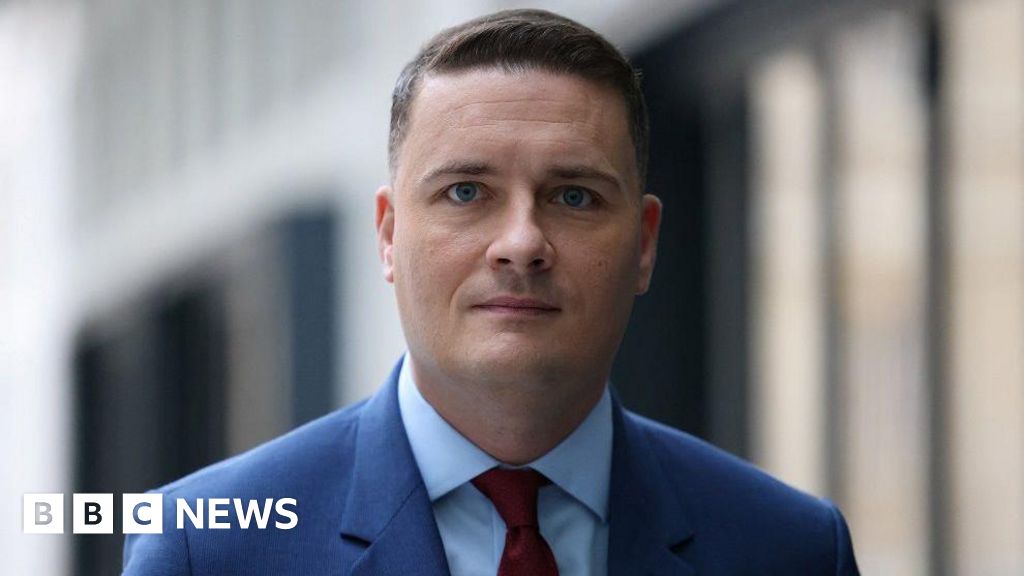
Health Secretary Wes Streeting has dismissed suggestions that plans to provide weight loss jabs to unemployed people with obesity are “dystopian.”.
The UK government is launching a five-year trial with pharmaceutical giant Lilly to test if the weight-loss drug Mounjaro can help get more people back to work and ease the strain on the NHS in England by preventing obesity-related diseases.
The announcement prompted a backlash, with accusations that the government was stigmatising unemployed individuals and reducing people to their economic value.
Speaking on Sunday with Laura Kuenssberg, Streeting said the jabs were part of a broader healthcare plan, adding that he was “not interested in some dystopian future where I involuntarily jab unemployed people who are overweight”.
“There’s a lot of evidence already that these jabs combined with changes to diet and exercise can help people to reduce their weight but also prevent cardiovascular disease and also diabetes which is game-changing,” Streeting said.
But he cautioned against creating a “dependency culture”.
Some injections are already prescribed on the NHS for the treatment of obesity, and also for people with diabetes.
Prime Minister Sir Keir Starmer previously told the BBC the jabs would be “very helpful” to people who want and need to lose weight.
“[The drug is] very important for our NHS, because, yes we need more money for the NHS, but we’ve also got to think differently”.
The NHS’s latest Health Survey for England shows in 2022, 29% of adults in England were obese and 64% were deemed to be overweight.
Illnesses relating to obesity cost the NHS £11bn a year, Streeting said.
Obesity has also been linked to the development of type 2 diabetes, with the NHS spending around £10bn a year – 9% of its budget – to care for people with diabetes.
Politics
Minister relinquishes Grenfell brief after survivors object
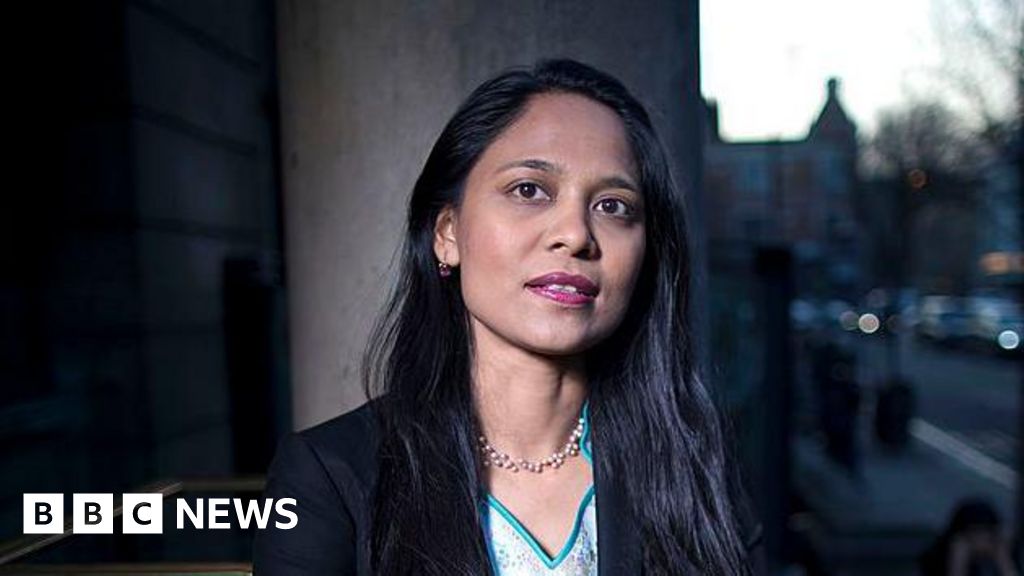
A Labour minister in the housing department has given up her duties managing building safety and the government’s response to the Grenfell Tower fire.
According to the Sunday Times, survivors of the tragedy had called for Rushanara Ali to stand down after the newspaper highlighted her attendance at the Franco-British Colloque, a conference that brings together senior politicians, civil servants and business leaders.
For many years, the conference has been co-chaired by Pierre-André de Chalendar, who until recently served as chairman of Saint-Gobain – the parent company of one of the firms heavily criticised in the recent Grenfell inquiry.
While the MP for Bethnal Green and Stepney is not resigning as a minister, she said she was relinquishing her building safety brief because “perception matters”.
The last meeting of the Colloque was held in January, several months before the general election.
Mr De Chalendar reportedly no longer serves as the co-chair of the conference.
The former head of Saint-Gobain was in charge of the company at the time of the Grenfell fire, when it was a majority shareholder of Celotex.
Celotex was one of the firms to manufacture the combustible insulation inside the cladding on Grenfell Tower.
The Grenfell Inquiry’s Phase 2 report heavily criticised Celotex for launching a “dishonest scheme to mislead its customers” over the suitability of its insulation for use on high-rise buildings.
According to the register of MPs’ interests, Ali was one of half a dozen MPs who attended this year’s Colloque in Paris in January.
Ali was re-elected to her east London seat in July, where she has been an MP since 2010.
In a statement, the Minister for Homelessness and rough sleeping said: “Trusted relationships between ministers and the Grenfell community are essential for this Department.
“Before I became a minister, I called for the French delegation of the Franco-British Colloque to cut ties with Saint Gobain. But I understand that perception matters and I have therefore concluded that the building safety portfolio would be best transferred to another minister.
“Our goals of making buildings safe and preventing another tragedy continue to be very important issues for me, and the deputy prime minister and the rest of the ministerial team have my full support in delivering on this work.”
Politics
The Tata family member who became a British MP and fought for India’s freedom

 Picryl
PicrylThe name Shapurji Saklatvala may not be one that leaps out of the history books to most people. But as with any good tale from the past, the son of cotton merchant – who is a member of India’s supremely wealthy Tata clan – has quite a story.
At every turn, it seems that his life was one of constant struggle, defiance and persistence. He shared neither the surname of his affluent cousins, nor their destiny.
Unlike them, he would not go on to run the Tata Group, which is currently one of the world’s biggest business empires and owns iconic British brands like Jaguar Land Rover and Tetley Tea.
He instead became an outspoken and influential politician who lobbied for India’s freedom in the heart of its coloniser’s empire – the British Parliament – and even clashed with Mahatma Gandhi.
But how did Saklatvala, born into a family of businessmen, pursue a path so different from his kin? And how did he blaze a trail to become one Britain’s first Asian MPs? The answer is as complex as Saklatvala’s relationship with the his own family.
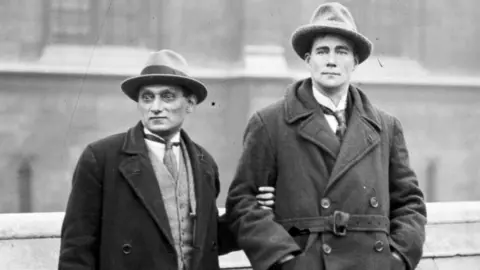 Getty Images
Getty ImagesSaklatvala was the son of Dorabji, a cotton merchant, and Jerbai, the youngest daughter of Jamsetji Nusserwanji Tata, who founded the Tata Group. When Saklatvala was 14 years old, his family moved into Esplanade House in Bombay to live with Jerbai’s brother (whose name was also Jamsetji) and his family.
Saklatvala’s parents separated when he was young and so, the younger Jamsetji became the main paternal figure in his life.
“Jamsetji always had been especially fond of Shapurji and saw in him from a very early age the possibilities of great potential; he gave him a lot of attention and had great faith in his abilities, both as a boy and as a man,” Saklatvala’s daughter, Sehri, writes in The Fifth Commandment, a biography of her father.
But Jamsetji’s fondness of Saklatvala made his elder son, Dorab, resent his younger cousin.
“As boys and as men, they were always antagonistic towards each other; the breach was never healed,” Sehri writes.
It would eventually lead to Dorab curtailing Saklatvala’s role in the family businesses, motivating him to pursue a different path.
But apart from family dynamics, Saklatvala was also deeply influenced by the devastation caused by the bubonic plague in Bombay in the late 1890s. He saw how the epidemic disproportionately impacted the poor and working classes, while those in the upper echelons of society, including his family, remained relatively unscathed.
During this time, Saklatvala, who was a college student, worked closely with Waldemar Haffkine, a Russian scientist who had to flee his country because of his revolutionist, anti-tsarist politics. Haffkine developed a vaccine to combat the plague and Saklatvala went door-to-door, convincing people to inoculate themselves.
“Their outlooks had much in common; and no doubt this close association between the idealist older scientist and the young, compassionate student, must have helped to form and to crystallise the convictions of Shapurji,” Sehri writes in the book.
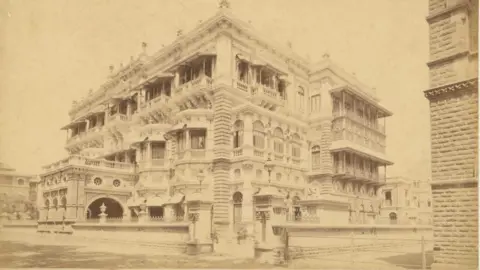 Getty Images
Getty ImagesAnother important influence was his relationship with Sally Marsh, a waitress he would marry in 1907. Marsh was the fourth of 12 children, who lost their father before becoming adults. Life was tough in the Marsh household as everybody had to work hard to make ends meet.
But the well-heeled Saklatvala was drawn towards Marsh and during their courtship, he was exposed to the hardships of Britain’s working class through her life. Sehri writes that her father was also influenced by the selfless lives of the Jesuit priests and nuns under whom he studied during his school and college years.
So, after Saklatvala travelled to the UK in 1905, he immersed himself in politics with an aim to help the poor and the marginalised. He joined the Labour Party in 1909 and 12 years later, the Communist Party. He cared deeply about the rights of the working class, in India and in Britain, and believed that only socialism – and not any imperialist regime – could eradicate poverty and give people a say in governance.
Saklatvala’s speeches were well received and he soon became a popular face. In 1922, he was elected to parliament and would serve as an MP for close to seven years. During this time, he advocated ferociously for India’s freedom. So staunch were his views that a British-Indian MP from the Conservative Party regarded him as a dangerous “radical communist”.
During his time as an MP, he also made trips to India, where he held speeches to urge the working class and young nationalists to assert themselves and pledge their support for the freedom movement. He also helped organise and build the Communist Party of India in the areas he visited.
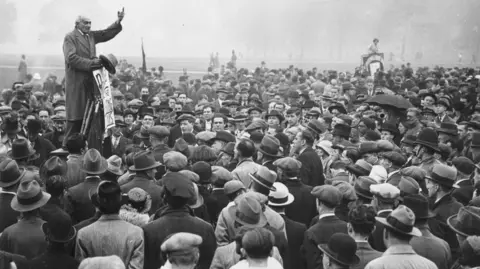 Getty Images
Getty ImagesHis strident views on communism often clashed with Mahatma Gandhi’s non-violent approach to defeat their common adversary.
“Dear Comrade Gandhi, we are both erratic enough to permit each other to be rude in order to freely express oneself correctly,” he wrote in one of his letters to Gandhi, and proceeded to mince no words about his discomfort with Gandhi’s non-co-operation movement and him allowing people to call him “Mahatma” (a revered person or sage).
Though the two never reached an agreement, they remained cordial with each other and united in their common goal to overthrow British rule.
Saklatvala’s fiery speeches in India perturbed British officials and he was banned from traveling to his homeland in 1927. In 1929, he lost his seat in parliament, but he continued to fight for India’s independence.
Saklatvala remained an important figure in British politics and the Indian nationalist movement until his death in 1936. He was cremated and his ashes were buried next to those of his parents and Jamsetji Tata in a cemetery in London – uniting him once again with the Tata clan and their legacy.
Politics
Reeves considers income tax threshold freeze
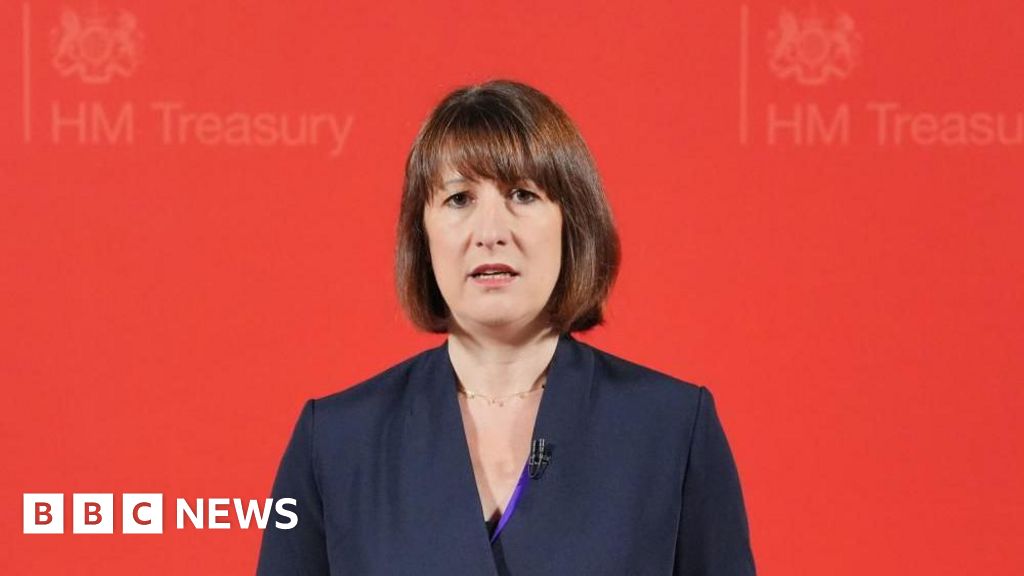
An announcement in the upcoming budget of a continued freeze on income tax thresholds beyond 2028 would not constitute a breach of Labour’s election manifesto promise, government sources have insisted.
In the run-up to June’s general election, both leader Sir Keir Starmer and the soon-to-be Chancellor Rachel Reeves pledged to “not increase taxes on working people”.
But a threshold freeze could allow the chancellor to raise an estimated £7bn by bringing more people into the tax system.
Reeves is currently trying to find £40bn through a mixture of savings and tax rises that she will announce in the new government’s first budget on Wednesday 30 October.
Tax thresholds were frozen by the previous Conservative government in 2022, but were due to rise again each year from 2028.
The chancellor is now said to be weighing a plan to extend the freeze for the remainder of the parliament.
The decision not to increase tax thresholds would continue a process called “fiscal drag”, in which more people are “dragged” into paying tax, or higher rates of tax, as their wages rise and cross the unchanging thresholds.
If Reeves goes ahead with the plan, roughly 400,000 more people will find themselves paying income tax at the basic rate.
Government insiders have insisted this does not breach Labour’s manifesto pledge to “not increase taxes on working people”.
Sources are pointing to the exact wording of the manifesto, which states that the “rates” of income tax would not rise.
In other words, in England, Wales and Northern Ireland these would remain – depending on income – at 20p, 40p and 45p.
But as people’s wages increased, so too would their tax bill.
In 2019, the Conservatives also pledged not to increase tax “rates” – and went on to freeze tax thresholds.
At the time, this was denounced by the Labour opposition as a “stealth tax”.
However, it is not one the party has specifically pledged to reverse.
Labour’s opponents will argue that an extension of a freeze would undermine the party’s wider-ranging promise not to increase taxes on working people.
Reeves has just 11 days to firm up her plans ahead of Budget day.
The country’s first female chancellor has warned of a £22bn “black hole” in the public finances – a gap caused by the rules the government has chosen to follow governing how much money it can borrow over the next five years.
Filling this hole would only be enough to “keep public services standing still”, the chancellor said this week.
This means she is hoping to find £40bn in order to avoid real-terms cuts to government departments.
Reeves has warned of “difficult decisions” ahead.
-

 Science & Environment1 month ago
Science & Environment1 month agoHyperelastic gel is one of the stretchiest materials known to science
-

 Technology4 weeks ago
Technology4 weeks agoIs sharing your smartphone PIN part of a healthy relationship?
-

 Science & Environment1 month ago
Science & Environment1 month ago‘Running of the bulls’ festival crowds move like charged particles
-

 Science & Environment1 month ago
Science & Environment1 month agoHow to unsnarl a tangle of threads, according to physics
-

 Science & Environment1 month ago
Science & Environment1 month agoMaxwell’s demon charges quantum batteries inside of a quantum computer
-

 Technology1 month ago
Technology1 month agoWould-be reality TV contestants ‘not looking real’
-

 Science & Environment4 weeks ago
Science & Environment4 weeks agoX-rays reveal half-billion-year-old insect ancestor
-

 Science & Environment1 month ago
Science & Environment1 month agoSunlight-trapping device can generate temperatures over 1000°C
-

 Science & Environment1 month ago
Science & Environment1 month agoLiquid crystals could improve quantum communication devices
-

 Science & Environment1 month ago
Science & Environment1 month agoQuantum ‘supersolid’ matter stirred using magnets
-

 Womens Workouts4 weeks ago
Womens Workouts4 weeks ago3 Day Full Body Women’s Dumbbell Only Workout
-

 Science & Environment1 month ago
Science & Environment1 month agoWhy this is a golden age for life to thrive across the universe
-

 Science & Environment1 month ago
Science & Environment1 month agoQuantum forces used to automatically assemble tiny device
-

 Science & Environment1 month ago
Science & Environment1 month agoLaser helps turn an electron into a coil of mass and charge
-

 Science & Environment1 month ago
Science & Environment1 month agoNerve fibres in the brain could generate quantum entanglement
-

 Science & Environment1 month ago
Science & Environment1 month agoHow to wrap your mind around the real multiverse
-

 Science & Environment1 month ago
Science & Environment1 month agoA slight curve helps rocks make the biggest splash
-

 Technology3 weeks ago
Technology3 weeks agoUkraine is using AI to manage the removal of Russian landmines
-

 TV3 weeks ago
TV3 weeks agoসারাদেশে দিনব্যাপী বৃষ্টির পূর্বাভাস; সমুদ্রবন্দরে ৩ নম্বর সংকেত | Weather Today | Jamuna TV
-

 Science & Environment1 month ago
Science & Environment1 month agoA new kind of experiment at the Large Hadron Collider could unravel quantum reality
-

 Science & Environment1 month ago
Science & Environment1 month agoITER: Is the world’s biggest fusion experiment dead after new delay to 2035?
-

 News1 month ago
News1 month ago▶️ Hamas in the West Bank: Rising Support and Deadly Attacks You Might Not Know About
-
News1 month ago
the pick of new debut fiction
-

 Science & Environment1 month ago
Science & Environment1 month agoTime travel sci-fi novel is a rip-roaringly good thought experiment
-

 News1 month ago
News1 month ago▶️ Media Bias: How They Spin Attack on Hezbollah and Ignore the Reality
-

 Science & Environment1 month ago
Science & Environment1 month agoNuclear fusion experiment overcomes two key operating hurdles
-

 News4 weeks ago
News4 weeks agoOur millionaire neighbour blocks us from using public footpath & screams at us in street.. it’s like living in a WARZONE – WordupNews
-

 Technology4 weeks ago
Technology4 weeks agoWhy Machines Learn: A clever primer makes sense of what makes AI possible
-
Business3 weeks ago
DoJ accuses Donald Trump of ‘private criminal effort’ to overturn 2020 election
-

 Business2 weeks ago
Business2 weeks agoWhen to tip and when not to tip
-

 Technology3 weeks ago
Technology3 weeks agoMicrophone made of atom-thick graphene could be used in smartphones
-

 MMA3 weeks ago
MMA3 weeks agoJulianna Peña trashes Raquel Pennington’s behavior as champ
-

 News2 weeks ago
News2 weeks agoNavigating the News Void: Opportunities for Revitalization
-

 News2 weeks ago
News2 weeks agoMassive blasts in Beirut after renewed Israeli air strikes
-

 Science & Environment1 month ago
Science & Environment1 month agoPhysicists have worked out how to melt any material
-

 Science & Environment1 month ago
Science & Environment1 month agoPhysicists are grappling with their own reproducibility crisis
-

 Sport3 weeks ago
Sport3 weeks agoWorld’s sexiest referee Claudia Romani shows off incredible figure in animal print bikini on South Beach
-

 Technology3 weeks ago
Technology3 weeks agoThis AI video generator can melt, crush, blow up, or turn anything into cake
-

 Technology2 weeks ago
Technology2 weeks agoSamsung Passkeys will work with Samsung’s smart home devices
-

 News2 weeks ago
News2 weeks ago▶ Hamas Spent $1B on Tunnels Instead of Investing in a Future for Gaza’s People
-

 News2 weeks ago
News2 weeks agoHeavy strikes shake Beirut as Israel expands Lebanon campaign
-

 TV2 weeks ago
TV2 weeks agoLove Island star sparks feud rumours as one Islander is missing from glam girls’ night
-

 Sport2 weeks ago
Sport2 weeks agoCoco Gauff stages superb comeback to reach China Open final
-

 Sport2 weeks ago
Sport2 weeks agoWales fall to second loss of WXV against Italy
-

 Football3 weeks ago
Football3 weeks agoRangers & Celtic ready for first SWPL derby showdown
-

 News2 weeks ago
News2 weeks agoHeartbreaking end to search as body of influencer, 27, found after yacht party shipwreck on ‘Devil’s Throat’ coastline
-

 Sport3 weeks ago
Sport3 weeks agoSturm Graz: How Austrians ended Red Bull’s title dominance
-

 Sport2 weeks ago
Sport2 weeks agoBoxing: World champion Nick Ball set for Liverpool homecoming against Ronny Rios
-
Business3 weeks ago
Eurosceptic Andrej Babiš eyes return to power in Czech Republic
-

 News1 month ago
News1 month agoYou’re a Hypocrite, And So Am I
-

 Sport1 month ago
Sport1 month agoJoshua vs Dubois: Chris Eubank Jr says ‘AJ’ could beat Tyson Fury and any other heavyweight in the world
-

 TV3 weeks ago
TV3 weeks agoPhillip Schofield accidentally sets his camp on FIRE after using emergency radio to Channel 5 crew
-

 MMA2 weeks ago
MMA2 weeks agoPereira vs. Rountree prediction: Champ chases legend status
-

 MMA3 weeks ago
MMA3 weeks agoDana White’s Contender Series 74 recap, analysis, winner grades
-

 Technology3 weeks ago
Technology3 weeks agoAmazon’s Ring just doubled the price of its alarm monitoring service for grandfathered customers
-

 Technology2 weeks ago
Technology2 weeks agoTexas is suing TikTok for allegedly violating its new child privacy law
-

 TV2 weeks ago
TV2 weeks agoMaayavi (මායාවී) | Episode 23 | 02nd October 2024 | Sirasa TV
-

 News2 weeks ago
News2 weeks agoHull KR 10-8 Warrington Wolves – Robins reach first Super League Grand Final
-

 Money2 weeks ago
Money2 weeks agoWhy thousands of pensioners WON’T see State Pension rise by full £460 next year
-

 MMA2 weeks ago
MMA2 weeks ago‘Uncrowned queen’ Kayla Harrison tastes blood, wants UFC title run
-

 Science & Environment1 month ago
Science & Environment1 month agoRethinking space and time could let us do away with dark matter
-

 Science & Environment1 month ago
Science & Environment1 month agoCaroline Ellison aims to duck prison sentence for role in FTX collapse
-

 Science & Environment1 month ago
Science & Environment1 month agoA tale of two mysteries: ghostly neutrinos and the proton decay puzzle
-
News1 month ago
The Project Censored Newsletter – May 2024
-

 Technology4 weeks ago
Technology4 weeks agoMeta has a major opportunity to win the AI hardware race
-

 Technology3 weeks ago
Technology3 weeks agoQuantum computers may work better when they ignore causality
-

 Technology3 weeks ago
Technology3 weeks agoUniversity examiners fail to spot ChatGPT answers in real-world test
-

 Health & fitness1 month ago
Health & fitness1 month agoThe secret to a six pack – and how to keep your washboard abs in 2022
-

 News1 month ago
News1 month agoNew investigation ordered into ‘doorstep murder’ of Alistair Wilson
-

 Sport3 weeks ago
Sport3 weeks agoWatch UFC star deliver ‘one of the most brutal knockouts ever’ that left opponent laid spark out on the canvas
-
Business3 weeks ago
Bank of England warns of ‘future stress’ from hedge fund bets against US Treasuries
-

 News2 weeks ago
News2 weeks agoGerman Car Company Declares Bankruptcy – 200 Employees Lose Their Jobs
-

 Technology2 weeks ago
Technology2 weeks agoPopular financial newsletter claims Roblox enables child sexual abuse
-

 News2 weeks ago
News2 weeks agoFamily plans to honor hurricane victim using logs from fallen tree that killed him
-

 MMA2 weeks ago
MMA2 weeks agoPereira vs. Rountree preview show live stream
-

 Technology2 weeks ago
Technology2 weeks agoA very underrated horror movie sequel is streaming on Max
-

 News2 weeks ago
News2 weeks agoBalancing India and China Is the Challenge for Sri Lanka’s Dissanayake
-

 Technology2 weeks ago
Technology2 weeks agoThe best shows on Max (formerly HBO Max) right now
-

 Sport2 weeks ago
Sport2 weeks agoMan City ask for Premier League season to be DELAYED as Pep Guardiola escalates fixture pile-up row
-

 Technology3 weeks ago
Technology3 weeks agoEpic Games CEO Tim Sweeney renews blast at ‘gatekeeper’ platform owners
-

 Business3 weeks ago
Business3 weeks agoChancellor Rachel Reeves says she needs to raise £20bn. How might she do it?
-

 MMA3 weeks ago
MMA3 weeks agoAlex Pereira faces ‘trap game’ vs. Khalil Rountree
-

 Football3 weeks ago
Football3 weeks agoSimo Valakari: New St Johnstone boss says Scotland special in his heart
-

 Technology3 weeks ago
Technology3 weeks agoMusk faces SEC questions over X takeover
-

 Technology2 weeks ago
Technology2 weeks agoApple iPhone 16 Plus vs Samsung Galaxy S24+
-
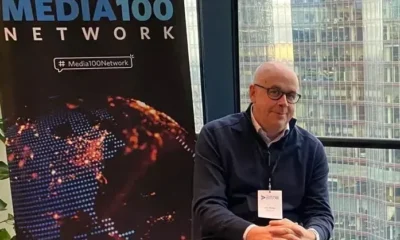
 News2 weeks ago
News2 weeks agoReach CEO Jim Mullen: If government advertises with us, we’ll employ more reporters
-
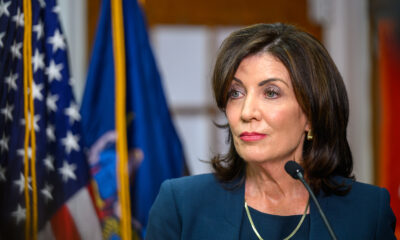
 Politics2 weeks ago
Politics2 weeks agoHochul’s careful conversations
-

 Football1 month ago
Football1 month agoMike Williamson: Carlisle United appoint MK Dons boss as head coach
-
Politics1 month ago
UK consumer confidence falls sharply amid fears of ‘painful’ budget | Economics
-

 Servers computers4 weeks ago
Servers computers4 weeks agoWhat are the benefits of Blade servers compared to rack servers?
-

 Technology3 weeks ago
Technology3 weeks agoArtificial flavours released by cooking aim to improve lab-grown meat
-
Business3 weeks ago
Should London’s tax exiles head for Spain, Italy . . . or Wales?
-

 MMA3 weeks ago
MMA3 weeks agoConor McGregor challenges ‘woeful’ Belal Muhammad, tells Ilia Topuria it’s ‘on sight’
-

 Technology4 weeks ago
Technology4 weeks agoRobo-tuna reveals how foldable fins help the speedy fish manoeuvre
-

 Technology3 weeks ago
Technology3 weeks ago‘From a toaster to a server’: UK startup promises 5x ‘speed up without changing a line of code’ as it plans to take on Nvidia, AMD in the generative AI battlefield
-

 Football3 weeks ago
Football3 weeks agoFootball Focus: Martin Keown on Liverpool’s Alisson Becker
-
Business3 weeks ago
LVMH strikes sponsorship deal with Formula 1
-

 Money3 weeks ago
Money3 weeks agoThe four errors that can stop you getting £300 winter fuel payment as 880,000 miss out – how to avoid them
-

 News2 weeks ago
News2 weeks agoDisguised Sunderland GP poisoned man in will row, court hears
-
Business2 weeks ago
CEOs turn to podcasts to control their message


You must be logged in to post a comment Login